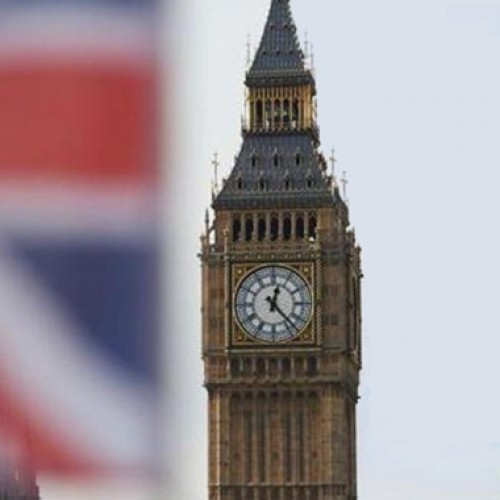The Importance of Building Brand Loyalty in the Travel and Hospitality Industry
Words by Ramsha Akhtar
Today, travellers have a seemingly endless variety of choices. No matter what type of business you run in the sector, there are always other companies offering a better – or at least cheaper – version of what you are already selling. So, to survive in this new economy, businesses must be able to build brand loyalty and retain their loyal customer base. To help us, we have a few industry experts weigh in on what they are doing to cut through the clutter of options and increase brand loyalty.
The development of the Travel and Hospitality industry is so dynamic that it inadvertently calls for tight competition amongst business competitors. With the number of choices in every spectrum of travel and the technological advances and innovations happening every step of the way, the consumer or in this case, the traveller, can choose the product they want. Naturally, this means that even the companies that are at the top cannot relax. So, each company is required to have the right brand strategy to be able to maintain its product or service in the market.
Nowadays, travellers are opting to choose products based on their practicality rather than the brand. Thus, to retain these consumers, companies need to build brand awareness. Accordingly, the study of consumer’s attitude towards brands is one that has increased exponentially in the past few years amongst both, practitioners and academia. But before we delve further, let’s try and understand the meaning of a brand. The American Marketing Association defines brands as, “Names, terms, signs, symbols, or design, or combinations thereof, intended to identify goods or services from one seller or seller group and differentiate products or services from competitors.” Thus, often more than differences between the product itself, brands have dimensions that make them distinguishable from one another. These differences are more symbolic and emotional representations of the brand.
How Community Influences a Sense of Loyalty
Brand loyalty is a measure of the consumer’s relationship with the brand, which results in a repeated purchase(s) of a product or a service based on their satisfaction. One of the major factors that contributes to an increased sense of brand loyalty is a community. Studies show that a community accounts for 80% of a brand’s business and is a result of merely 20% of brand community members. Currently, online branded communities are gaining momentum and emerging as the new driving force for sales. Apart from repurchases, communities provide brands and other consumers with an additional communication channel. This communication/interaction helps the brand to establish more connections and secure more members. The brand community also emphasizes the benefits of the products and services from their chosen brand and simultaneously highlights any negative information about other brands, directing the attention away from the positive traits of other brands. Thus, it is vital for brands to engage with the loyal 20% members/consumers of their brand. After all, compared to non-members of the brand, community members tend to spend more time on the brand, return more often, buy/avail products and services at a higher rate, generate activity and also refer the products or services to others.
Even if the brand is strong in the market, it is necessary for the brand to continue to innovate and engage, to maintain its loyalty amongst repeat consumers. Therefore in spite of being the head of a leading GDS provider in India, Sandeep Dwivedi, Chief Operating Officer at InterGlobe Technology Quotient, reveals that “To connect with our existing and prospective customers, we have adopted 360-degree marketing approach including communicating through external channels such as press, social media and website. Our major emphasis, however, remains on internal sources including our Relationship Managers to bring that personal touch in our communications about not only the latest offers but also shortfalls, especially in pressing times like the current pandemic. As a service-focused organization, we ensure the products we sell come with right trainings, best practices, 24X7 support and subscription to latest in-house technologies including those driven by artificial intelligence and robotics, such as chatbots.”
Customer Lifetime Values
Customer lifetime value is the average amount of money your customer will spend on your business over the whole period of your relationship. It has long been acknowledged that this metric both provides evidence of the effectiveness of a company’s brand awareness and relates to its net worth. By comparing the revenue value per traveller to his/her life span, a brand can strategize how best to cater to different consumers with different values.
To improve the CLV, a brand must engage with its consumers and build trust that will be the foundation of their business relationship. Not only does this make the brand seem invested but also improves the onboarding process by eliminating those members who most likely will drop out of the sales funnel. Meeting set expectations, delivering on promises, creating a personalized feed catering to their interests, responding to help requests in a timely manner and a money-back guarantee in case of any inconvenience, are some of the ways that brands can establish trust and improve their CLV.
Hospitality veteran, Sunil Ghadiok, Head – Development, Shanti Hospitality Management Services, reiterates this fact. He explains, “When it comes to building brand loyalty, the most important thing is to build trust with customers. It is also important to be responsive to the needs of customers. That is why we take every feedback from our customer very seriously. The other important factor for building brand loyalty is consistently exceeding customer expectations by delivering a stellar level of services and always meeting brand
standards.”
So, essentially, a brand’s focus should entirely be on customer experience. In fact, in one of the studies conducted by Temkin Group, it was found that 86% of those who have had great customer experience are likely to return to repurchase the product.
How to Engage the Price Sensitive Indian Consumer
Many foreign companies have wanted to tap the large and lucrative Indian market, but have found understanding the peculiar price-sensitive Indian consumer an issue. ABCG-CII research carried out with consumers from more than 10 countries highlights that Indian consumers are far more value-conscious than their counterparts abroad. They are more likely to negotiate prices, spend lesser on luxury items and save more than most of their foreign peers. Most likely, this is because Indian consumers are used to paying nominal prices for most services, thanks to the stiff competition in almost every segment that ensures numerous alternatives. In addition, the majority of India’s population is young and still in the struggling phase financially.
As a result of this lack of understanding of the Indian psyche, many companies limited themselves to accommodate the premium section, but the actual potential lies outside of those bounds. To tap this latent potential travel companies should try and cut down on operating costs and offer the least price possible. When this is not possible, as compensation and to provide extra value, brands should offer rewards, flexibility, discounts, value additions etc., to increase brand loyalty.
Virgin Atlantic is one international aviation company that has successfully understood the pulse of the Indian customer and is continuously working to adapt to the needs of the market. Accordingly, Alex McEwan, Country Manager– South Asia, Virgin Atlantic, said that “Opportunities to fly with us this year have been more limited, with travel restrictions in force. We have recognized this and made sure that points earned by our frequent fliers will never expire. So if you flew a lot with us in the last couple of years, you can have peace of mind that the points you earned will not be lost, and you can plan your next trip with confidence. Customers are really valuing the flexibility we are offering during the pandemic; with our Covid-19 insurance policy included in all tickets giving customers complete peace of mind when they travel. Our flexible booking policy allows customers to make changes to their bookings easily in case their plans change. Further, when customers utilize and redeem their points on a flight with us, they will also earn more points for their next trip, innovative development for Flying Club, our frequent flier program.” Initiatives like this can explain the overwhelming response they have received since restarting operations in September to India.
Brands That Have Successfully Built Recognizable Brands
One such a successful brand is Amsterdam based Booking.com. It now has 9,00,000 listings since its conception in 2012 in the Indian market. Keeping in mind the price-sensitive Indian audience it provides thoroughly competitive rates, yet the brand knows that the market also seeks value and authenticity to the extent that they wouldn’t mind paying a premium for a unique holiday experience and provides those options too. Additionally, it offers personalization using data, analytics, artificial intelligence and machine learning. All factors that have helped Booking.com break through the tough market and acquire a large business portion.
Another such brand and model is that of 27-year-old, RiteshAgarwal’s OYO Rooms. Yes, OYO has its adequate share of problems but the company has been able to build a highly-visible and highly recognizable brand, across the world’s most populous regions such as India and China. It is Indias largest budget hotel chain and the world’s third-largest hotel chain, it now has over 23,000 hotels, 8,50,000 rooms and 46,000 vacation homes across the globe including in USA, UK, UAE and Malaysia. It has innovatively addressed the biggest concerns in the budget segment- cleanliness, safety, amenities and ease of finding availability.
Apart from its essential room booking services, it also offers other options to cater to as many needs as possible through OYO townhouses, OYO Homes, Silverkeys, OYO Palette, OYO Living, Studio Stays and Holidays Packages. At a nominal fee, their hospitality membership program, OYO Wizard, offers its members additional discounts, special offers, appraised and curated lodging, etc.
Conclusion
Keeping your customers and clients happy plays a big role in the overall success of your organization. Every interaction with a customer is an opportunity to create brand loyalty. By rewarding current loyal customers, a business can reduce its financial burden while it works on acquiring new customers and growing. These loyal consumers form a strong and special bond with the brand as they continue to have a sense of belonging, trust, satisfaction and emotional attachment to the brand. To that end, community building and engagement are an essential part of creating brand loyalty and loyal members often interact with each other and thus create an ideal environment to market products by sharing them.
You might also like
New train to Hassan named Gomateshwara Express
The Bengaluru-Hassan superfast train, which was flagged off by railway minister Suresh Prabhakar Prabhu at Yeshwantpur Railway Station on Sunday, has been named Gomateshwara Express. Prabhu chose the name after
London, Manchester and Birmingham jointly launch international tourism drive
England’s largest cities to promote the ultimate English tourism experience The UK’s three largest cities, London, Manchester and Birmingham have formed an alliance to jointly promote the best of English
MakeMyTrip launches myPartner for offline agents to leverage online platform
PARTNERSHIP MakeMyTrip unveils its B2B2C business to empower local travel agents Travel agents to get access to the widest selection of travel inventory and assistance in delivering enhanced booking experiences









